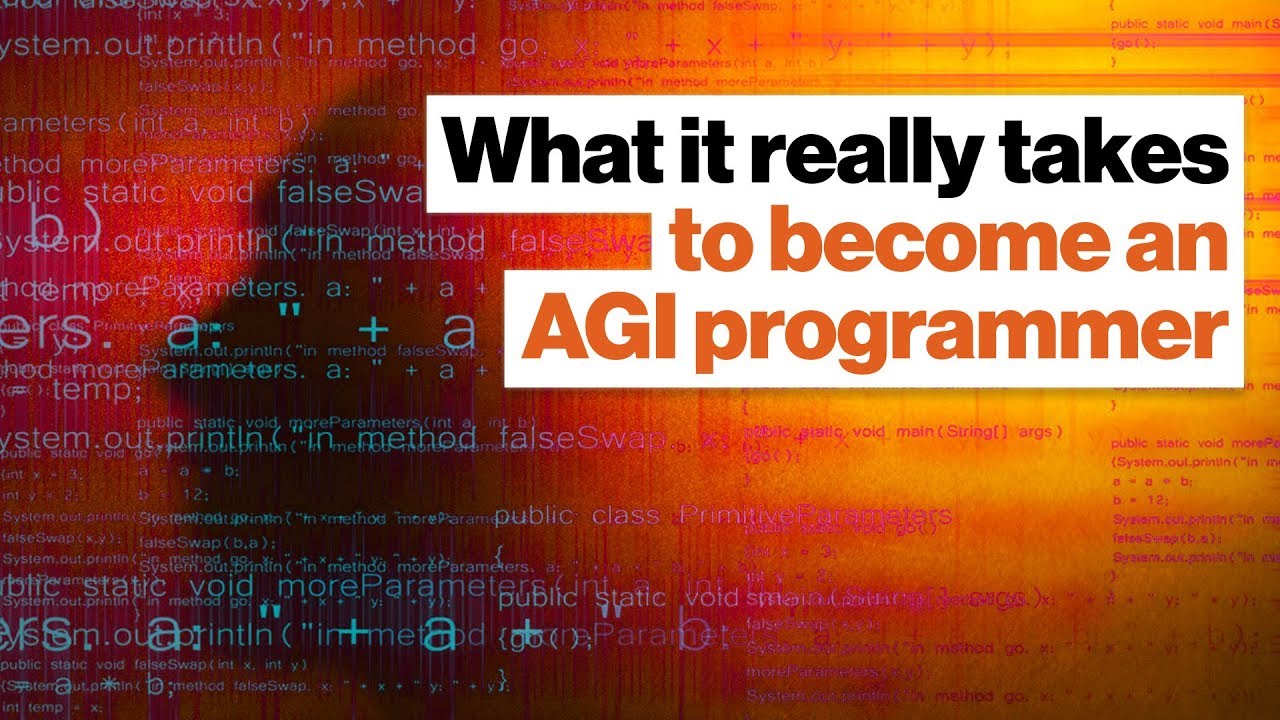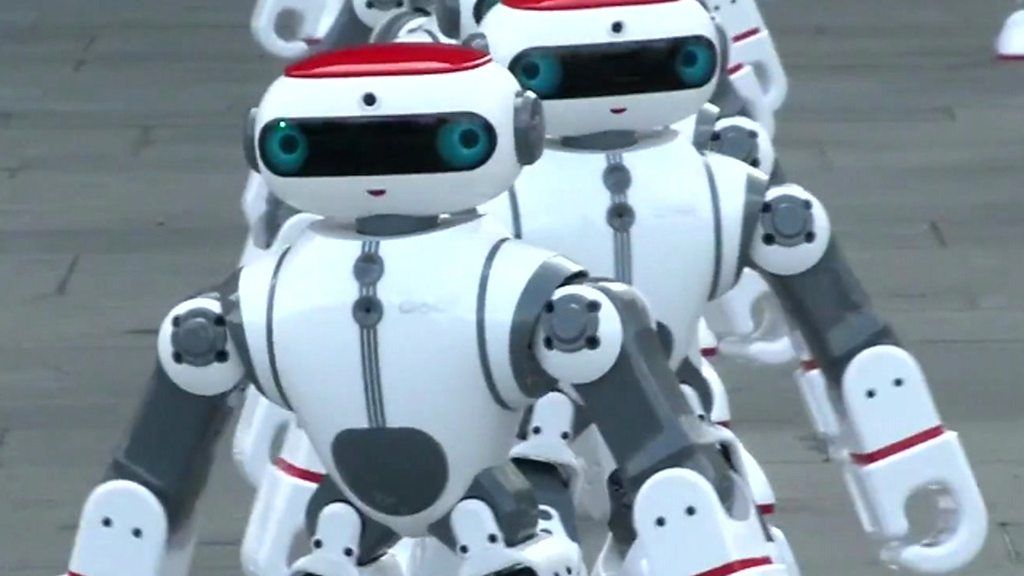Big Think
Read more at BigThink.com:
Follow Big Think here:
YouTube: http://goo.gl/CPTsV5
Facebook: https://www.facebook.com/BigThinkdotcom
Twitter: https://twitter.com/bigthink
Ben Goertzel: There’s aspects, yes. AGI has aspects of computer science, mathematics, engineering, philosophy of mind, linguistics, neuroscience. It’s quite cross disciplinary, and the education system isn’t really that way. It’s more that way in the U.S. than anywhere else on the planet actually. That’s a strength the U.S. has. Here as an undergraduate you can at least take courses in every department. And in many countries that’s not true.
But even in the U.S. the education system is not nearly as cross disciplinary as it should be for grappling with a problem like AGI or with say quantum computing or nanotechnology or a lot of other cutting edge things.
So what that means is if someone wants to really work in one of these cutting edge topics that has the highest probability of transforming the world, if they want to work on these things in the core capacity, they have to take their own time to study a bunch of other fields that they didn’t learn in school. And that also takes time. You can’t do that by reading a blog post. I mean you’ve got to, you know, take out a neuroscience textbook and go through it step by step. And not everyone has the patience for that.
But again some people do, and I’d say Coursera, Udacity and MIT, the many universities that have put their courseware online have been a huge, huge asset in this process because those help lead people through the process of learning information from all the different disciplines that they need to attack something like AGI. We found these online courses incredibly useful in what we’ve been doing in Ethiopia.
So in 2013 I cofounded with two others Ethiopia’s first AI and robotics development company. So we do some original R&D, some projects aimed at helping the African situation. Then a bunch of software and robotics outsourcing. The company is called iCog Labs based in Addis Ababa. And we have an internship program which we use for recruiting.
So we take dozens of undergrad students each year and what we do is we give them some hands-on lessons in OpenCog and various other AI tools. We also have each of them take like seven Coursera courses. And they go through them very quickly and they teach them neuroscience, computational linguistics, bioinformatics, machine learning, a bunch of topics that are not offered in the university there.
And this works much better than giving them a bunch of textbooks to read because it gives them a process and a community to enter into. It not only teaches them information but it weeds out people who don’t have the persistence to slog through stuff from a bunch of different disciplines and really stretch their brain in a deeper cross disciplinary way.
So yeah, I’d say, as with everything else there’s pluses and minuses all tangled up, right? I mean the modern way of doing things in some ways eliminates people’s attention span because nobody has to think for themselves. They immediately look up the answer on the internet or download something instead of trying to solve a problem themselves.
On the other hand there’s so much high quality educational material out there together with supportive communities for people who do want to plunge in deeper and get a more foundational understanding.
But what we do in OpenCog is we’ve worked out a system where each of the cognitive processes can help the other one out when it gets stuck in some combinatorial explosion problem. So if a deep neural network trying to perceive things gets confused because it’s dark or it’s looking at something it never saw before, well maybe the reasoning engine can come in and do some inference to cut through that confusion.
If logical reasoning is getting confused and doesn’t know what step to take next because there’s just so many possibilities out there and not much information about them, well, maybe you fish into your sensory motor memory and you use deep learning to visualize something you saw before, and that gives you a clue of how to pare through the may possibilities that the logic engine is seeing.
Now you can model this kind of cognitive synergy mathematically using a branch of mathematics called category theory, which is something I’ve been working on lately.
But what’s really interesting more so is to build a system that manifests this and achieves general intelligence as a result, and that’s what we’re doing in the OpenCog project.
Source




Oh fuck this, I'm out. Thanks.
How did he get herpes
I like this guy, because he's a complete failure in the right direction.
is that oral herpes?
Take the most basic software science courses and some philosophical shit, become a hippy. Aaaand…. you're an AI programmer.
Is this the hippy version of Ray Kurzweil??
Whuuuut?
Make yourself presentable.
Can't take a goon like this seriously.
So he’s like the Willy Wonka of the internet or wha ?
Let the man speak cut off way too early he needs more air time
His open cog project is like the Manhattan project of our time.
Who is this idiot?
What are the courses?
wow how can you be this smart but miss the herpes face 1- 2 to much hand and sway movement 3 to much lip smacking 4 over sized lenses glasses dirty lenses the lazers can fix your eyes, hair and neck mark goofy hat you look scary to me perhaps I'm to judgemental, but everyone knows a camera will have a hard time with this,button up your shirt and don't claw at the camera dude is this a test?
The problem with American universities is that all students are encouraged to waste time with useless humanities courses.
They're not alone in allowing students access to courses across the university, though. I did my MSc in computer science in Ireland and was able to design the course myself. I took lectures from a variety of different masters-level courses, including Cognitive science, statistics and advanced software engineering, in addition to computer science.
AGI (I've heard of the "General Problem Solver" some 40 years ago in a book that was then 10 years old) … oh yes … it was on the verge of a breakthrough for … hmm, how long? … 20 years or even longer? He might be on to something (his explanations and ideas sound reasonable), but if this will really be the breakthrough that could be labeled "AGI" – who knows (I personally don't think so).
I can't talk for the US, but here in the Netherlands inter-disciplinary education is the norm. No extra costs for taking courses across departments, and no ridiculous pressure to finish your degree ASAP – quite the contrary even – that encourages exploration and extra-curricular development.
This guy speaks like a fucking genius
At about 1 minute in I subconsciously walked away from the computer to find chocolate. Just saying.
Ben Goertzel is a prolific guy with many interesting companies.
He's very expressive in his hand movements. Usually this supports understanding, but he does it to a distracting level.
Dude , take me!
im dying to dedicate my mind in the artificial inteligence section!
i wanna do something that i like for a living and this area is in one word fascinating!
i got in a computer science university , ill be a freshman in a few months when the academic year starts and i was wondering if there s a path that leads there
Yes, a jack of many trades can often see things in a different way. But the problem as you describe it suggests to me the more obvious solution of collaboration between specialists from different disciplines. What of that?
We r here to see what it takes to be AI developer. This is the guy they gave us to tell us how…smh
What 7 coursera courses do they take ?
Does anyone maybe have links to the corsera courses hes referring?
Mr. Goertzel, is the aim for your AGI programming recruits the same as the AGI recruiting aims of Geordie Rose? (Kindred – DWave, et.al)
#artificialgeneralintelligence
that's basically what I've been doing. I have zero cash, so I had to find out "pirated" books online. but it is quite hard to go through them. I have a very weird way of doing things. I'd jump from one to the other consistently. so I find it hard to be producing actual results. which is quite frustrating.
I'll give my opinion about researching agi. well, agi might be possible, only that a certain representation hasn't yet been reached. there probably wasn't a single person trying to tackle the problem using a specific solution. the human mind is the first thing you'd wanna look into. you can do that by long periods of introspection, instead of just trying to objectively find what is already there, you can just look inside yourself and try to build a system that would emulate your way of thinking.
rather than using neuroscience, which is looking into the basic core aspects of the brain. you would rather try a different approach. since you are not developing a brute-force solution, which will basically be just a clone put into a computer. you are developing a thinking machine. not a human. so you need to keep that in mind when trying to tackle this problem.
after that, you need to basically systematically try out things and just indulge yourself into the field. so learning and practicing current ai techniques would be a must. this is where I am at.
then, you need to put that practice into use. game bots are most easy and fun to make once you get the hang of it. so that's the first thing you should try to do.
finally, proceed to develop the most fundamental aspect of the ai machine – logical, and linguistic reasoning.
you should've come up with ways to do that using introspection.
after that, It's just a matter of improving it. and you got yourself an agi.
of course, there is a difference between being able to walk and being able to do logic. I won't tell you anything besides the fact that the program needs to perform at different levels of computation when given raw input.
this is all assuming I have succeeded. if not, then, meh. I am not going to reveal what I think currently about this.
it may be not so obvious as it is to me. but, it may also be that I am bullshitting myself. so…. yeah.
Yes exactly what I'm thinking
Let's be honest if you don't trust Ben to usher in a new era of compassionate AGI and a positive singularity then you seriously need to have a good word with yourself and question your discernment 🙂
OpenCock gave him herpes.